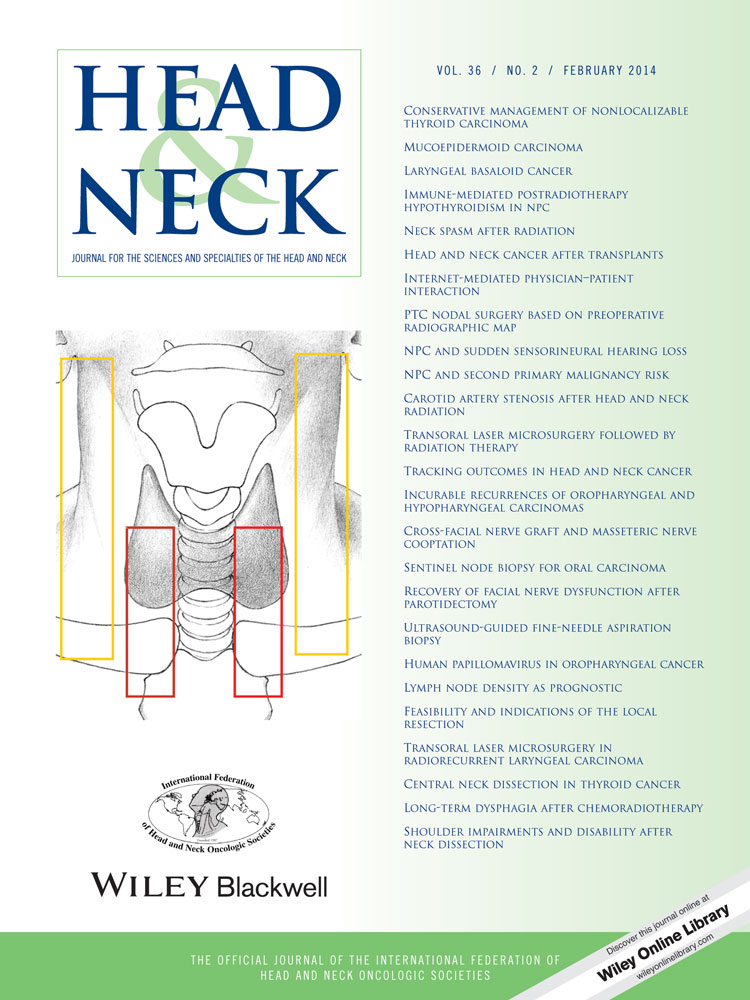Developing a system to track meaningful outcome measures in head and neck cancer treatment
Abstract
Background
The health care industry, including consumers, providers, and payers of health care, recognize the importance of developing meaningful, patient-centered measures. This article describes our experience using an existing electronic medical record largely based on free text formats without structured documentation, in conjunction with tumor registry abstraction techniques, to obtain and analyze data for use in clinical improvement and public reporting.
Methods
We performed a retrospective analysis of 2467 previously untreated patients treated with curative intent who presented with laryngeal, pharyngeal, or oral cavity cancer in order to develop a system to monitor and report meaningful outcome metrics of head and neck cancer treatment. Patients treated between 1995 and 2006 were analyzed for the primary outcomes of survival at 1 and 2 years, the ability to speak at 1 year posttreatment, and the ability to swallow at 1 year posttreatment.
Results
We encountered significant limitations in clinical documentation because of the lack of standardization of meaningful measures, as well limitations with data abstraction using a retrospective approach to reporting measures. Almost 5000 person-hours were required for data abstraction, quality review, and reporting, at a cost of approximately $134,000. Our multidisciplinary teams document extensive patient information; however, data is not stored in easily accessible formats for measurement, comparison, and reporting.
Conclusion
We recommend identifying measures meaningful to patients, providers, and payers to be documented throughout the patients' entire treatment cycle, and significant investment in the improvements to electronic medical records and tumor registry reporting in order to provide meaningful quality measures for the future. © 2013 Wiley Periodicals, Inc. Head Neck 36: 226–230, 2014




